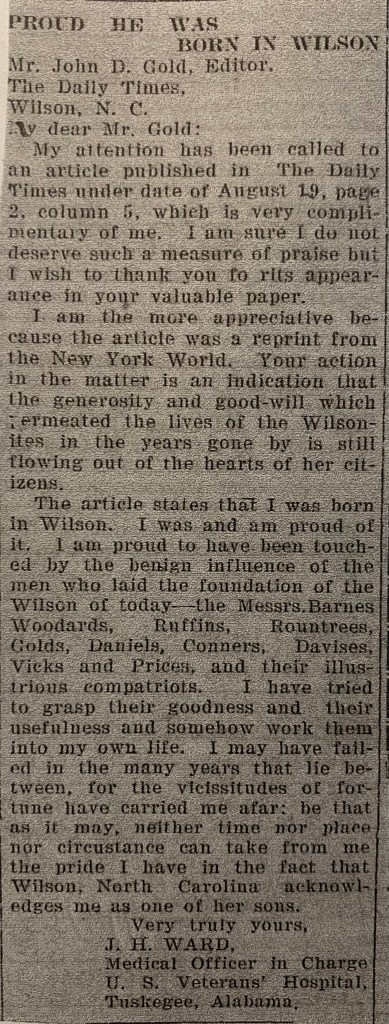This past September, the Department of Veterans Affairs posthumously awarded an Exceptional Service Award to Wilson native Dr. Joseph H. Ward for his leadership of the V.A.’s first all-Black hospital “during an era of severe discrimination and racial hostility.”
To learn more about Dr. Ward and Tuskegee Veterans Administration Hospital, see this recent NPR piece, A Century Ago, Black WWI Vets Demanded Better Care. They Got Their Own Hospital, and this National Archives blogpost, The Trials and Triumphs of Dr. Joseph H. Ward.
Dr. Joseph H. Ward stands at center in the first row in the photograph taken of the V.A. Hospital’s ground-breaking all-Black medical staff.


















